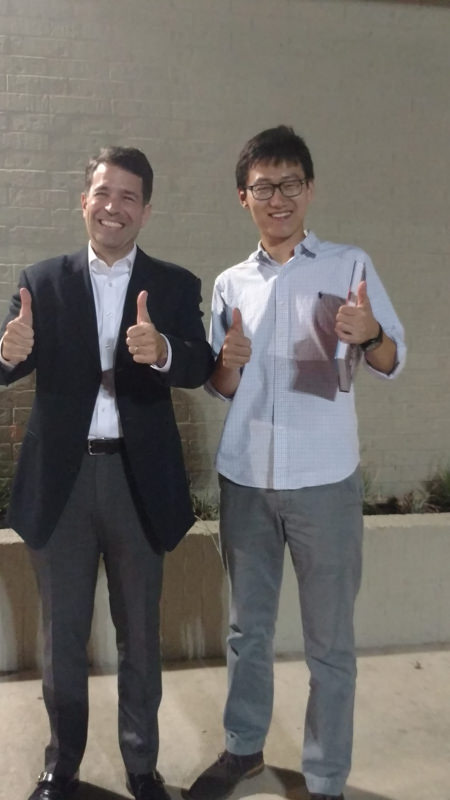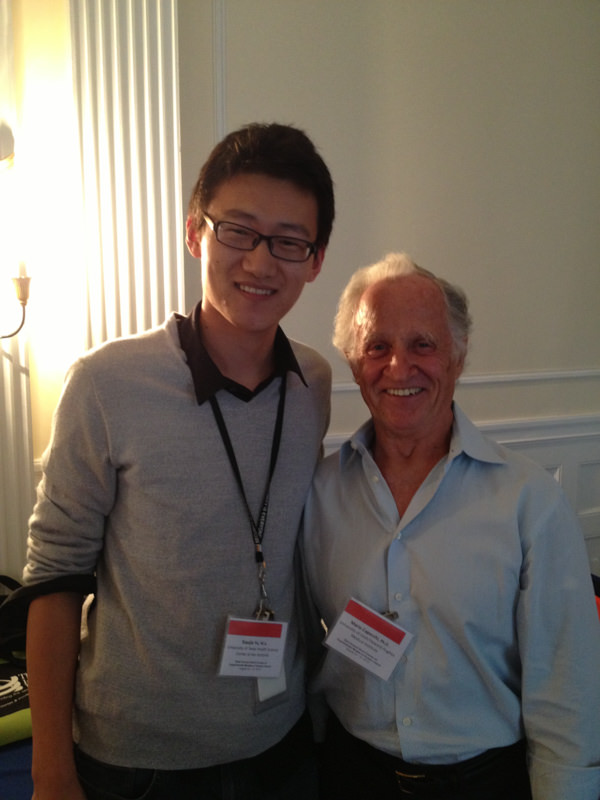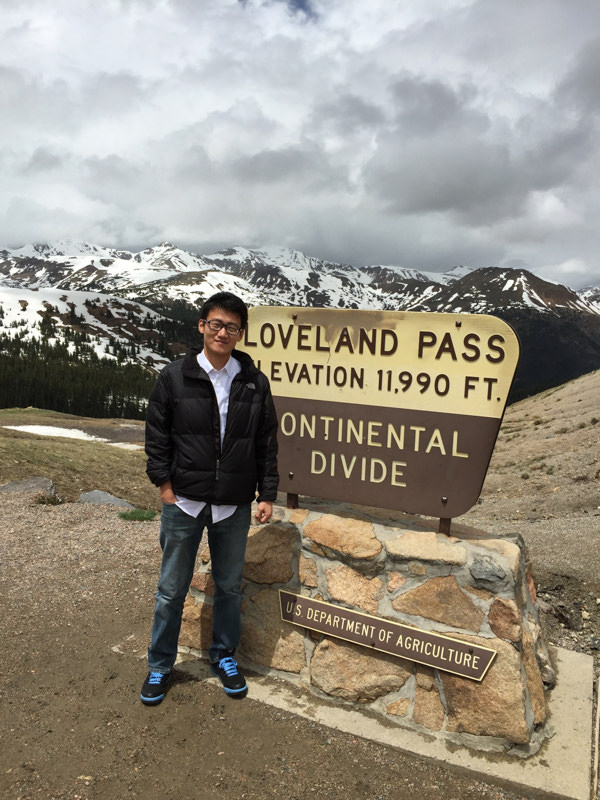13 Questions With The Always Funny Dr. Xiaojie Yu
 1) Your name, program, mentor name.
1) Your name, program, mentor name.
Dr. Xiaojie Yu, Integrated Multidisciplinary Graduate Program (IMGP) now called Integrated Biomedical Sciences Program (Cancer Biology discipline), Dr. Alexander Pertsemlidis.
2) When did you realize you were passionate about science?
My passion for science started from the moment when I saw scientists on television and thought those guys were cool in white lab coats. After all these years, I don’t think of white lab coats as cool or fashionable any more. Yet, my passion about science has never faded away.
3) Please tell me about yourself, why did you pick UT Health San Antonio, and your program.
Hi, everybody, I am Xiaojie Yu. Oh, sorry, I am Dr. Xiaojie Yu. I studied the pathogenesis of non-small cell lung cancer and the potential novel therapeutic avenues to treat non-small cell lung cancer.
The reason why I chose UT Health San Antonio is because IMGP is a multidisciplinary program comprised of different disciplines across basic science and clinics, which gives me great opportunities to explore my real interest in science.
 4) Tell me about your research. Why are you passionate about your research topic? How did you first become interested in it?
4) Tell me about your research. Why are you passionate about your research topic? How did you first become interested in it?
MicroRNAs (miRNAs) are small non-coding RNAs that inhibit gene expression by direct binding to the 3’UTRs of target genes.
I have been screening and validating miRNAs that regulate cell viability alone or in combination with widely-used therapeutic agents, in both neuroblastoma and lung cancer cells. Neuroblastoma is the second leading cause for cancer-related deaths in children and the most common extracranial solid pediatric tumor; lung cancer is the leading cause of cancer deaths worldwide.
My project studied both neuroblastoma and lung cancer because of the close relation between them, with findings in one often informative as to the biology of the other. Neuroblastoma and lung cancer have same mutations or changes in same genes or miRNAs, such as mutations of ALK and N-Myc genes and dowregulation of let-7 miRNA family. Understanding of one cancer cannot replace, but at least can provide some useful clues for, the study of the other. My study will enhance our understandings of how miRNAs regulate cancer cell growth and their response to chemotherapy. Importantly, understanding the action mechanism of miRNAs in cancer will provide opportunities to harness miRNAs or their targets for cancer therapy.
5) What do you want the public to know about your research? Why is your topic important?
I would like the public to know the importance of miRNAs in cancer and the potential of miRNAs in cancer treatment. My project not only studies the miRNAs that regulate cancer cell growth and progression but also studies the miRNAs that regulate the response of cancer cells to chemotherapy. This will provide us insights into how to use miRNAs alone or in combination with chemotherapy for cancer treatment.
6) What was your best memory during graduate school or what did you learn?
My best memory during graduate school is how I met the girl I love, which the public might not be interested. I can tell you my second best memory, which is going out for lunch or dinner with my mentor, Dr. Pertsemlidis. He has high standards for foods (apparently you can see in me that he has high standards in students as well. I am also kidding J), and most cases I share the same standards. It is satisfying and enjoyable every time we went out for food. What I learned is that we should not expect too much from the restaurants in San Antonio. What I am going to learn is now sitting in the book about Franklin Barbecue that he gave to me.
7) Growing up, what did you want to be?
Basketball player.
8) Who has influenced you the most in life?
My mother. She is a dedicated woman. She taught me how to be a good person and how to deal with the ups and downs in my life.
9) If you were stranded on a deserted island, what one band or musician would help keep your sanity?
The Weepies, maybe.
10) What do you consider your favorite hobby?
Basketball
 11) What is something that you are really proud of?
11) What is something that you are really proud of?
Not very sure. If my girlfriend can see this blog, I will definitely say that I am really proud of finding such a wonderful girl.
12) What do you like to do outside of graduate school?
I usually go play basketball in my spare time. I dreamed of becoming a basketball player when I was young. But my passion about science broke out that dream. Otherwise, I might have been a star at NBA now. I think I should get a Nobel prize in return.
13) What’s next?
I will stay in our lab for a while to get my papers published and then move on to a postdoc position.
